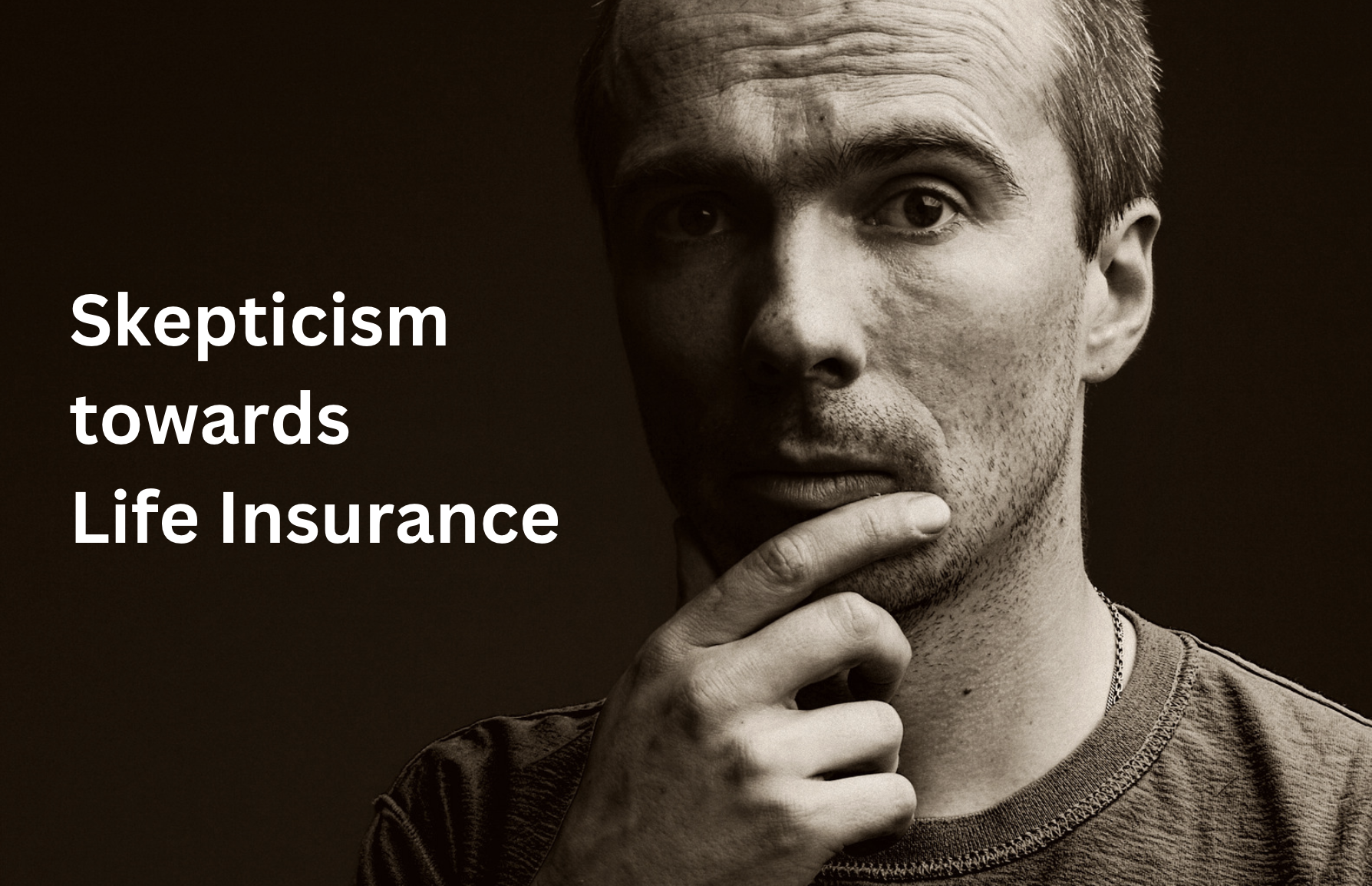Skepticism towards life insurance is a common sentiment that many people feel. Despite its benefits, some individuals may be hesitant to purchase a policy due to various reasons. This skepticism can arise from several factors and here are some of the reasons why:
- The fear of death: People often don’t like to think about their own mortality, and life insurance forces them to confront it. The idea of purchasing a policy that pays out only upon the policyholder’s death can be unsettling for some.
- Complexity: Life insurance policies can be complicated, with various types of coverage, riders, and exclusions. This complexity can make it challenging for people to understand what they’re buying, leading to confusion and mistrust.
- Negative associations: Life insurance is often associated with funeral expenses and mourning, which can make it an emotionally charged topic. Additionally, some people may associate life insurance with scammy or predatory practices, such as pushing unnecessary coverage or denying claims.
- Misunderstandings about purpose: Some people believe that life insurance is only useful for the wealthy or for those with dependents. However, life insurance can be a useful financial planning tool for anyone who wants to provide for their loved ones or cover their final expenses.
- It’s worth noting that many of these perceptions are based on misunderstandings or outdated stereotypes. Life insurance can be a valuable and responsible investment for many people, and there are many reputable providers out there.
Most Common Objections
- “I’m young and healthy, I don’t need life insurance.”
While it’s true that being young and healthy reduces the risk of death, accidents and illnesses can happen unexpectedly. Life insurance can provide financial protection for your loved ones in case the worst happens. Plus, you would typically qualify for much better ratings when you’re young and healthy compare to when you not.
- “Life insurance is too expensive.”
Life insurance premiums vary depending on factors such as age, health, and coverage amount. There are a variety of policy options available that can fit different budgets, and you can work with an insurance agent to find a policy that meets your needs and budget.
- “I have enough savings and investments to provide for my family if something happens to me.”
While savings and investments are important, they may not be enough to provide for your loved ones in the long term. Life insurance can provide a lump sum payment to your beneficiaries that can help cover expenses like mortgage payments, childcare, and living expenses.
- “I don’t want to think about death or plan for it.”
While it’s understandable to not want to think about death, planning for it can help ensure that your loved ones are taken care of if something unexpected happens to you. Life insurance can provide peace of mind knowing that your loved ones will be financially protected.
- “I don’t understand how life insurance works.”
Life insurance can be complex, but working with an insurance agent can help you understand the different policy options available and how they work. You can also do your own research to learn more about the different types of life insurance policies and their features.
Remember that it’s important to talk to a licensed financial advisor about life insurance because they can provide expert advice and guidance on choosing the right type and amount of coverage based on your unique financial situation and goals. A licensed financial advisor can also help you navigate complex insurance policies, explain the potential benefits and drawbacks of each option, and ensure that your life insurance aligns with your overall financial plan. By working with a licensed financial advisor, you can make informed decisions and feel confident that you are appropriate covered or that your loved ones will be financially protected in the event of your passing.
